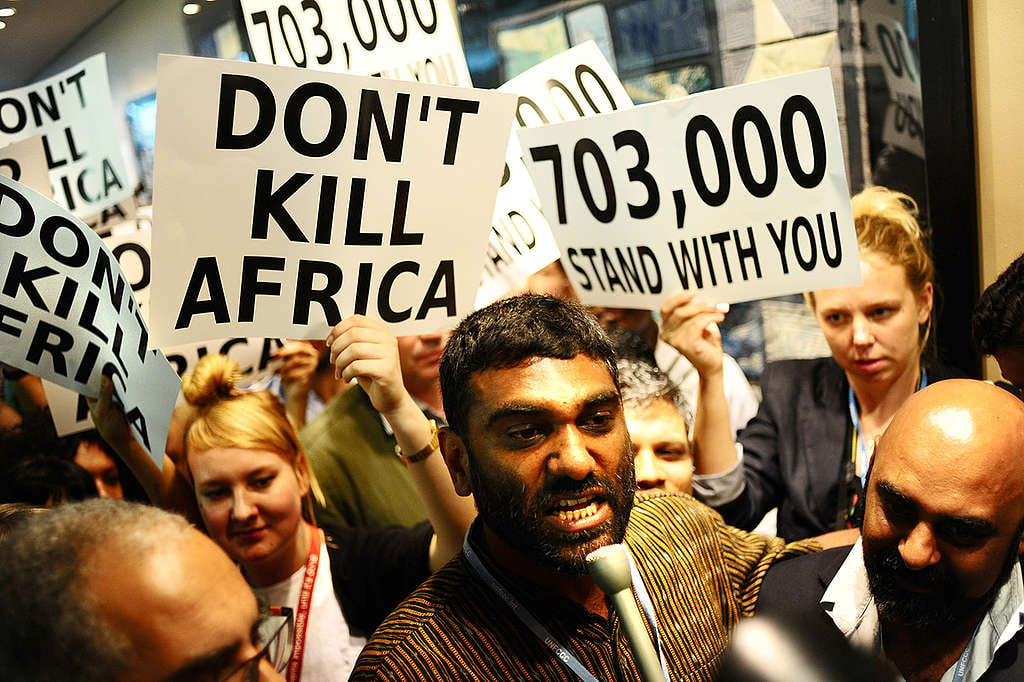04 March 2020, Johannesburg — On Tuesday, Ramaphosa expressed interest to the media in the idea of selling off Eskom’s ageing fleet of coal-fired power stations. In response, Happy Khambule, Greenpeace Africa’s Acting Senior Climate and Energy Campaign Manager, has said:
“Coal-fired power stations are destined to become stranded assets as the world wakes up to the necessity of a Just Transition to a clean, renewable energy future. President Ramaphosa’s comments are in line with recommendations made in Greenpeace’s 2019 report, ‘Eskom: A roadmap to powering the future[1].‘ They are an encouraging indication of a willingness to enact radical, fundamental reforms that will change the trajectory of South Africa’s energy future – never mind the future of Eskom.
“If the utility proceeds with the sale of it’s ageing fleet, the conditions for sale need to be crystal clear. It is non-negotiable that, no matter who’s hands the power stations are in, they simply must comply with air quality legislation – no more hiding from accountability behind applications for postponement from compliance.[2] Additionally, workforce jobs should be protected, but timelines for the closure of coal-fired power stations must be adhered to, as prolonging the lifetimes of these polluting power stations merely prolongs Eskom’s licence to kill,” ended Khambule.
Notes
[1] In a Greenpeace report released on 11 June 2019, Greenpeace expanded on and put forward a radical but practical option. The report “Eskom: A roadmap to powering the future” presented a roadmap with solid options for the country’s electricity supply industry crisis. The press release can be found here.
Key recommendations from the report include:
- The gradual phase-out of coal-fired power generation from Eskom to new generation companies (GenCos), which will operate the power plants for the remainder of their operating time on the basis of precisely defined conditions (e.g. a coal phase-out by 2040).
- The refinancing of Eskom through the decommissioning of coal-fired power stations older than 40 years, and the sale of all remaining coal-fired power plants; with very strict conditions in terms of their compliance with existing air quality and environmental regulations, and clear timelines for their closure. In principle, it must be considered whether private companies should also be invited to buy shares of the coal plants, or whether only public companies should have the right to participate in the auctions for the plants.
- The retention by Eskom of the important role of the transmission system operator (TSO) with the possibility of operating its own grid-supporting (non-coal) power plants.
- The opening of the IPP auctions for renewable energies to Eskom as well in order to make it a significant part of the utility’s business model.
- The possibility for Eskom to participate in the newly created six regional electricity distributors (REDs).
- The opportunity for Eskom to create new services for end-use customers on the basis of the digitalisation revolution that is evolving all over the world.
[2] Greenpeace Africa has responded to Eskom’s application for postponement from compliance with Minimum Emissions Standards previously. The Press Release can be found here.
Contact details
Chris Vlavianos: Greenpeace Africa Communications Officer, 0798837036, [email protected]
 Get Involved
Get Involved
